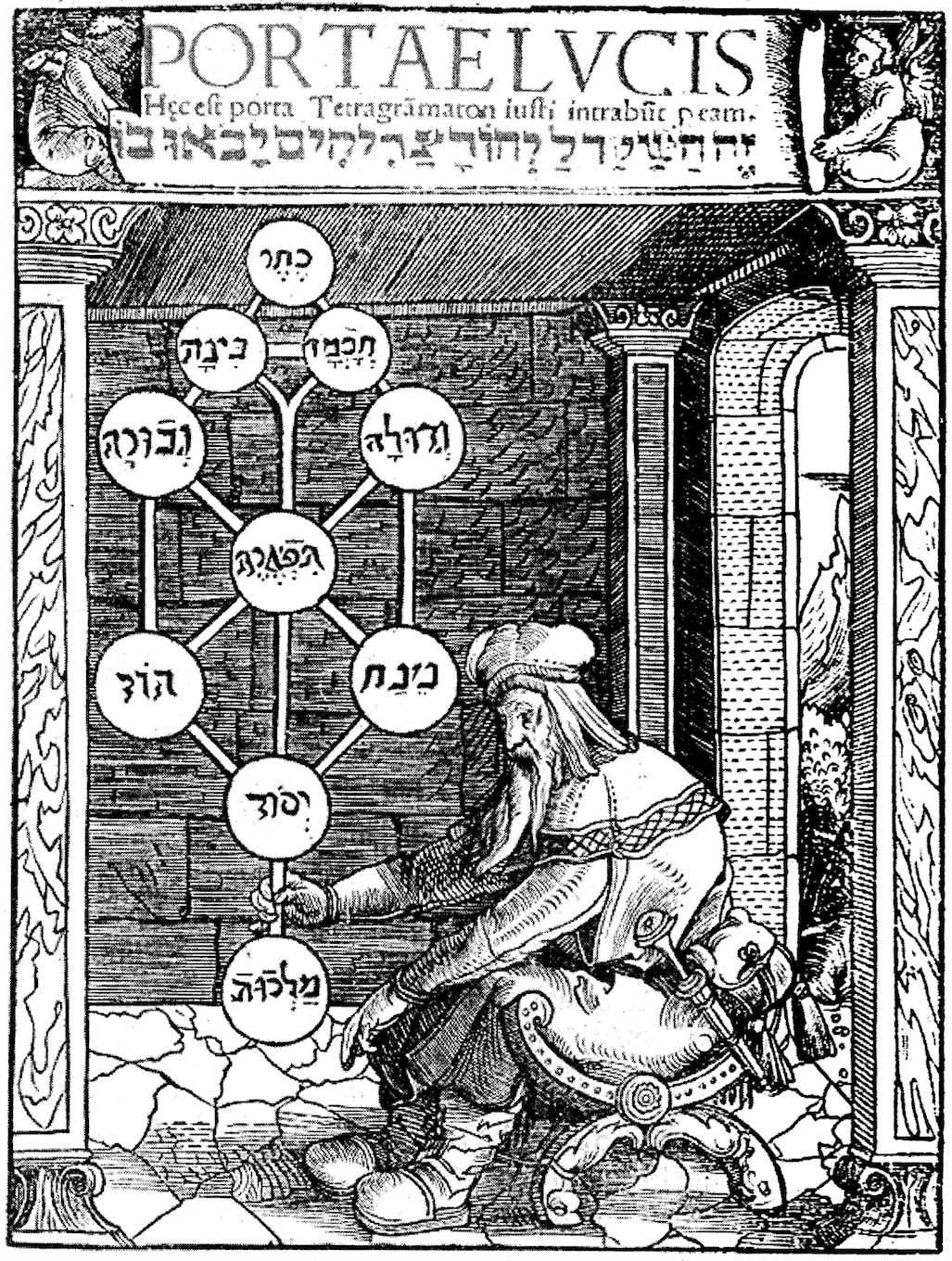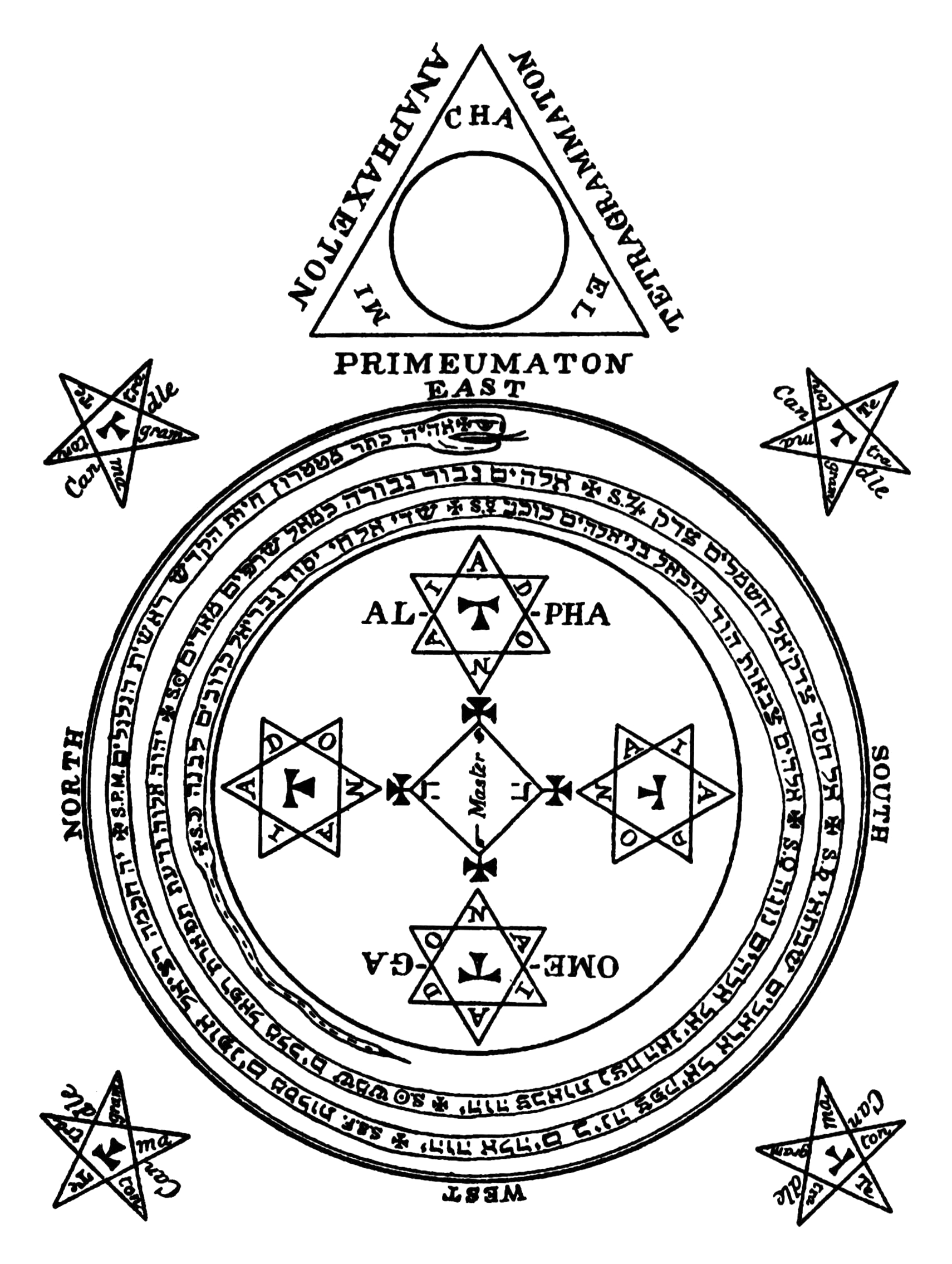|
Theistic Satanism
Theistic Satanism, otherwise referred to as traditional Satanism, spiritual Satanism, or religious Satanism, is an umbrella term for religious groups that consider Satan to objectively exist as a deity, supernatural entity, or spiritual being worthy of worship or reverence, whom individuals may believe in, contact, and convene with, in contrast to the atheistic archetype, metaphor, or symbol found in LaVeyan Satanism. Organizations who uphold theistic Satanist beliefs most often have few adherents, are loosely affiliated or constitute themselves as independent groups and cabals, which have largely self-marginalized. Another prominent characteristic of theistic Satanism is the use of various types of magic. Most theistic Satanist groups exist in relatively new models and ideologies, many of which are independent of the Abrahamic religions. In addition to the worship of Satan or the Devil in the Abrahamic sense, religious traditions based on the worship of other "adversarial ... [...More Info...] [...Related Items...] OR: [Wikipedia] [Google] [Baidu] |
Abrahamic Religions
The term Abrahamic religions is used to group together monotheistic religions revering the Biblical figure Abraham, namely Judaism, Christianity, and Islam. The religions share doctrinal, historical, and geographic overlap that contrasts them with Indian religions, Iranian religions, and East Asian religions. The term has been introduced in the 20th century and superseded the term Judeo-Christianity, Judeo-Christian tradition for the inclusion of Islam. However, the categorization has been criticized by some for oversimplification of different cultural and doctrinal nuances. For example, Islam shares cultural and doctrinal exchange from Asian religions, which Abrahamic religions are usually contrasted with. Usage The term ''Abrahamic religions'' (and its variations) is a collective religious descriptor for elements shared by Judaism, Christianity, and Islam. It features prominently in interfaith dialogue and political discourse but also has entered Academic discourse socializati ... [...More Info...] [...Related Items...] OR: [Wikipedia] [Google] [Baidu] |
Western Esotericism
Western esotericism, also known as the Western mystery tradition, is a wide range of loosely related ideas and movements that developed within Western society. These ideas and currents are united since they are largely distinct both from orthodox Judeo-Christian, Judeo-Christian religion and Age of Enlightenment rationalism. It has influenced, or contributed to, various forms of Western philosophy, mysticism, Western religions, religion, science, pseudoscience, Western art history, art, Western literature, literature, and Western culture#Music, music. The idea of grouping a wide range of Western traditions and philosophies together under the term ''esotericism'' developed in 17th-century Europe. Various academics have debated numerous definitions of Western esotericism. One view adopts a definition from certain esotericist schools of thought themselves, treating "esotericism" as a perennial philosophy, perennial hidden inner tradition. A second perspective sees esotericism as a ... [...More Info...] [...Related Items...] OR: [Wikipedia] [Google] [Baidu] |
Magick
Ceremonial magic (also known as magick, ritual magic, high magic or learned magic) encompasses a wide variety of rituals of Magic (supernatural), magic. The works included are characterized by ceremony and numerous requisite accessories to aid the practitioner. It can be seen as an extension of ritual magic, and in most cases synonymous with it. Popularized by the Hermetic Order of the Golden Dawn, it draws on such schools of philosophical and occult thought as Hermetic Qabalah, Enochian magic, Thelema, and the magic of various grimoires. Ceremonial magic is part of Hermeticism and Western esotericism. The synonym ''magick'' is an archaic spelling of 'magic' used during the Renaissance, which was revived by Aleister Crowley to differentiate occult magic from magic (illusion), stage magic. He defined it as "the Science and Art of causing Change to occur in conformity with Will", including ordinary acts of will as well as ritual magic. Crowley wrote that "it is theoretically ... [...More Info...] [...Related Items...] OR: [Wikipedia] [Google] [Baidu] |
Aleister Crowley
Aleister Crowley ( ; born Edward Alexander Crowley; 12 October 1875 – 1 December 1947) was an English occultist, ceremonial magician, poet, novelist, mountaineer, and painter. He founded the religion of Thelema, identifying himself as the prophet entrusted with guiding humanity into the Aeon of Horus, Æon of Horus in the early 20th century. A prolific writer, he published widely over the course of his life. Born to a wealthy family in Royal Leamington Spa, Warwickshire, Crowley rejected his parents' fundamentalist Christian Plymouth Brethren faith to pursue an interest in Western esotericism. He was educated at Trinity College, Cambridge, Trinity College at the University of Cambridge, where he focused his attention upon mountaineering and poetry, resulting in several publications. Some biographers allege that here he was recruited into a British intelligence agency, further suggesting that he remained a spy throughout his life. In 1898, he joined the esoteric Hermetic Order ... [...More Info...] [...Related Items...] OR: [Wikipedia] [Google] [Baidu] |
Ceremonial Magic
Ceremonial magic (also known as magick, ritual magic, high magic or learned magic) encompasses a wide variety of rituals of Magic (supernatural), magic. The works included are characterized by ceremony and numerous requisite accessories to aid the practitioner. It can be seen as an extension of ritual magic, and in most cases synonymous with it. Popularized by the Hermetic Order of the Golden Dawn, it draws on such schools of philosophical and occult thought as Hermetic Qabalah, Enochian magic, Thelema, and the magic of various grimoires. Ceremonial magic is part of Hermeticism and Western esotericism. The synonym ''magick'' is an archaic spelling of 'magic' used during the Renaissance, which was revived by Aleister Crowley to differentiate occult magic from magic (illusion), stage magic. He defined it as "the Science and Art of causing Change to occur in conformity with Will", including ordinary acts of will as well as ritual magic. Crowley wrote that "it is theoretically ... [...More Info...] [...Related Items...] OR: [Wikipedia] [Google] [Baidu] |
Black Magic
Black magic (Middle English: ''nigromancy''), sometimes dark magic, traditionally refers to the use of Magic (paranormal), magic or supernatural powers for evil and selfish purposes. The links and interaction between black magic and religion are many and varied. Beyond black magic's historical persecution by Christianity and its inquisitions, there are links between religious and black magic rituals. For example, 17th-century priest Étienne Guibourg is said to have performed a series of Black Mass rituals with alleged witch La Voisin, Catherine Monvoisin for Françoise-Athénaïs de Rochechouart, Marquise de Montespan, Madame de Montespan. During his period of scholarship, A. E. Waite provided a comprehensive account of black magic practices, rituals and traditions in ''The Book of Ceremonial Magic'' (1911). The influence of popular culture has allowed other practices to be drawn in under the broad banner of black magic, including the concept of Satanism. While the invoca ... [...More Info...] [...Related Items...] OR: [Wikipedia] [Google] [Baidu] |
Left-hand Path
In Western esotericism, left-hand path and right-hand path are two opposing approaches to magic. Various groups engaged with the occult and ceremonial magic use the terminology to establish a dichotomy, broadly simplified as (malicious) black magic on the left and (benevolent) white magic on the right. Others approach the left/right paths as different kinds of workings, without connotations of good or bad magical actions. Still others treat the paths as fundamental schemes, connected with external divinities on the right, contrasted with self-deification on the left. The terms have their origins in tantra: the right-hand path (RHP, or ''dakṣiṇācāra'') applied to magical groups that follow specific ethical codes and adopt social convention, while the left-hand path (LHP, or '' vāmācāra'') adopts the opposite attitude, breaking taboos and abandoning set morality. Contemporary occultists such as Peter J. Carroll have stressed that both paths can be followed by a magi ... [...More Info...] [...Related Items...] OR: [Wikipedia] [Google] [Baidu] |
New Age
New Age is a range of Spirituality, spiritual or Religion, religious practices and beliefs that rapidly grew in Western world, Western society during the early 1970s. Its highly eclecticism, eclectic and unsystematic structure makes a precise definition difficult. Although many scholars consider it a religious movement, its adherents typically see it as spiritual or as a unification of mind, body, and spirit, and rarely use the term ''New Age'' themselves. Scholars often call it the New Age movement, although others contest this term and suggest it is better seen as a Social environment, ''milieu'' or ''zeitgeist''. As a form of Western esotericism, the New Age drew heavily upon esoteric traditions such as the occultism of the eighteenth and nineteenth centuries, including the work of Emanuel Swedenborg and Franz Mesmer, as well as Spiritualism (movement), Spiritualism, New Thought, and Theosophy (Blavatskian), Theosophy. More immediately, it arose from mid-20th-century influen ... [...More Info...] [...Related Items...] OR: [Wikipedia] [Google] [Baidu] |
Modern Paganism
Modern paganism, also known as contemporary paganism and neopaganism, spans a range of new religious movements variously influenced by the Paganism, beliefs of pre-modern peoples across Europe, North Africa, and the Near East. Despite some common similarities, contemporary pagan movements are diverse, sharing no single set of beliefs, practices, or religious texts. Religious studies, Scholars of religion may study the phenomenon as a movement divided into different religions, while others study neopaganism as a decentralized religion with an array of Religious denomination, denominations. Adherents rely on Christianization, pre-Christian, folkloric, and ethnographic sources to a variety of degrees; many of them follow a spirituality that they accept as entirely modern, while others claim to adhere to Prehistoric religion, prehistoric beliefs, or else, they attempt to revive indigenous religions as accurately as possible. List of modern pagan movements, Modern pagan movements are ... [...More Info...] [...Related Items...] OR: [Wikipedia] [Google] [Baidu] |
Hermeticism
Hermeticism, or Hermetism, is a philosophical and religious tradition rooted in the teachings attributed to Hermes Trismegistus, a syncretism, syncretic figure combining elements of the Greek god Hermes and the Egyptian god Thoth. This system encompasses a wide range of Western esotericism, esoteric knowledge, including aspects of alchemy, astrology, and theurgy, and has significantly influenced various mystical and occult traditions throughout history. The writings attributed to Hermes Trismegistus, often referred to as the ''Hermetica'', were produced over a period spanning many centuries () and may be very different in content and scope. One particular form of Hermetic teaching is the religio-philosophical system found in a specific subgroup of Hermetic writings known as the Hermetica#Religio-philosophical Hermetica, 'religio-philosophical' ''Hermetica''. The most famous of these are the ''Corpus Hermeticum'', a collection of seventeen Ancient Greek, Greek treatises written b ... [...More Info...] [...Related Items...] OR: [Wikipedia] [Google] [Baidu] |
Gnosticism
Gnosticism (from Ancient Greek language, Ancient Greek: , Romanization of Ancient Greek, romanized: ''gnōstikós'', Koine Greek: Help:IPA/Greek, [ɣnostiˈkos], 'having knowledge') is a collection of religious ideas and systems that coalesced in the late 1st century AD among Early Christianity, early Christian sects. These diverse groups emphasized personal spiritual knowledge (''gnosis'') above the Proto-orthodox Christianity, proto-orthodox teachings, traditions, and authority of religious institutions. Generally, in Gnosticism, the Monad (Gnosticism), Monad is the supreme God who emanates divine beings; one, Sophia (Gnosticism), Sophia, creates the flawed demiurge who makes the material world, trapping souls until they regain divine knowledge. Consequently, Gnostics considered material existence flawed or evil, and held the principal element of salvation to be direct knowledge of the hidden divinity, attained via mystical or esoteric insight. Many Gnostic texts deal not in co ... [...More Info...] [...Related Items...] OR: [Wikipedia] [Google] [Baidu] |







